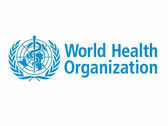
World Health Organisation
The World Health Organisation (WHO) is a specialised agency of the United Nations, established in 1948. The constitution of WHO was signed by 61 countries in 1946, which has increased to a total of 164 countries in 2016.
Since its establishment, WHO has played a key role in eradicating diseases like smallpox. It is also looking for treatments for other communicable diseases, particularly Ebola, HIV/AIDS, malaria and tuberculosis.
Besides these, the organisation also tackles issues like sexual and reproductive health, non-communicable diseases, ageing and nutrition among others.
Its major functions include directing and coordinating authority on health within the United Nations system. It also provides leadership in matters related to health, setting norms and standards, providing ethical based options and technical support to monitor the health situation.
WHO is also responsible for drafting of the World Health Report (international publication on health) and the worldwide Health Survey. Its formation day is celebrated as World Health Day.
The organisation has also been a part of certain controversies, it was heavily criticised during the 2014 Ebola outbreak for insufficient funding, structuring, staffing and bureaucracy.
Since its establishment, WHO has played a key role in eradicating diseases like smallpox. It is also looking for treatments for other communicable diseases, particularly Ebola, HIV/AIDS, malaria and tuberculosis.
Besides these, the organisation also tackles issues like sexual and reproductive health, non-communicable diseases, ageing and nutrition among others.
Its major functions include directing and coordinating authority on health within the United Nations system. It also provides leadership in matters related to health, setting norms and standards, providing ethical based options and technical support to monitor the health situation.
WHO is also responsible for drafting of the World Health Report (international publication on health) and the worldwide Health Survey. Its formation day is celebrated as World Health Day.
The organisation has also been a part of certain controversies, it was heavily criticised during the 2014 Ebola outbreak for insufficient funding, structuring, staffing and bureaucracy.
World Health Organisation News
World Health Organisation Photos














